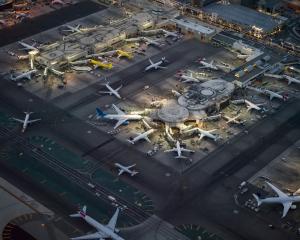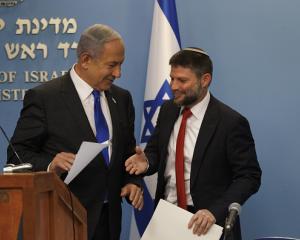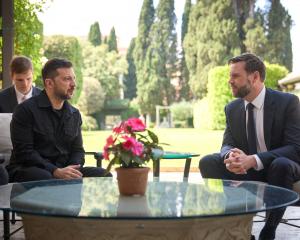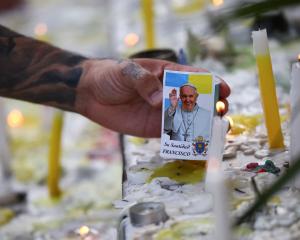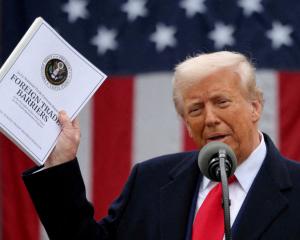
Just before he sat down to a traditional Bavarian meal of sausages and beer with German Chancellor Angela Merkel at the start of the G7 summit on Monday, US President Barack Obama told the media one of the meeting's priorities would be discussing ways of ''standing up to Russian aggression in Ukraine''.
Which begs the question: what kind of aggression are we talking about here?
There are unquestionably Russian troops in the rebel provinces of eastern Ukraine, and that is certainly an act of aggression under international law.
(The Russian troops there are definitely not just volunteers lending the rebels a hand while they are on leave, as Moscow maintains. How can we be sure? Because soldiers on leave do not take their tanks and artillery with them.)
But is this a prelude to a Russian invasion that would take over all of Ukraine, as Ukrainian President Petro Poroshenko recently alleged?
If it is, it would require a whole different level of response, and the result could easily be a new Cold War.
Is it also the first step in a Russian campaign to take back everything that used to be part of the Soviet Union, and before that of the Russian empire, as many in Estonia, Latvia, Lithuania, Moldova, Georgia and other former ''Soviet Republics'' fear?
If so, ''standing up to Russian aggression'' would be an even bigger task, involving a major Nato troop build-up in Europe and probably a new nuclear arms race.
Might Russian President Vladimir Putin actually be the next would-be world conqueror, out of the same mould as Napoleon and Hitler?
In that case, get ready for the Third World War, because it's unlikely that anything less would stop him.
So exactly what kind of aggressor Mr Putin is matters quite a lot.
Here's a clue: Mr Putin was first elected president of Russia in 1999, and for his first 15 years in power he didn't attack anybody.
(He responded very toughly to the cretinous Georgian attack on Russian peacekeeping troops in South Ossetia in 2008, but he didn't start that war.)
On the whole, would-be world conquerors don't wait 15 years before making their first move.
They get started as soon as possible, because it's a big job.
After three months of non-violent demonstrations against Ukraine's pro-Russian president, Viktor Yanukovych, in the winter of 2013-14, and after a day of shooting on Independence Square (the Maidan) in Kiev that killed at least 50 protesters and three policemen, Mr Putin agreed to a deal on February 21 that promised new elections in Ukraine within a month.
It was always puzzling why the demonstrators went out on to the square and spent three bitterly cold months there demanding that Mr Yanukovych quit right away, given that elections were due in Ukraine within a year.
Why not stay warm at home and vote him out next year?
He couldn't do anything irrevocable in the meantime.
Never mind that.
The representatives of the protesters definitely did agree to the deal hammered out by Russian and EU negotiators on the evening of February 21, 2014.
Mr Yanukovych was to resign and there would be new elections in one month.
Yet, only hours later, the demonstrators attacked the presidential administration buildings and Mr Yanukovych had to flee.
Why couldn't they wait even one month?
Maybe because they were afraid that they would lose the election.
Kiev is in western Ukraine, where most people are strongly pro-Western and would like to join the European Union, even Nato if possible.
It certainly looked to people watching it on television as if all Ukrainians wanted Mr Yanukovych out.
But Mr Yanukovych had won the 2010 election fair and square with a 52% majority, thanks to the votes of eastern Ukrainians.
Their ancestors had lived in the Russian empire for more than three centuries, unlike those of western Ukrainians.
Most eastern Ukrainians speak Russian, share the Orthodox religion of Russians, are actually pro-Russian in general.
What's more, eastern Ukraine is the home of almost all of the country's heavy industry, and it was Russia that bought most of the coal, steel and industrial goods produced by eastern Ukrainians.
It was their votes that elected Mr Yanukovych in 2010, and there was no reason to believe that they would vote differently in 2014.
There really was a coup in Kiev in 2014, and Mr Putin was quite right to feel deceived and betrayed.
He was wrong to respond as he did, taking back the province of Crimea (which had an overwhelmingly Russian population but had been bundled into Ukraine in a Communist-era decision in 1954).
He was very wrong to back the rebellion in the eastern Ukrainian provinces of Donetsk and Lugansk.
If he actually encouraged them to rebel (which is not clear) he is even more in the wrong.
It is all being done in defiance of international law.
But he is not setting out down the path of world conquest.
He is not even planning to take over Ukraine.
''Standing up to Putin'' is an invigorating moral exercise, but it is not, strictly speaking, necessary.
• Gwynne Dyer is an independent London journalist.



